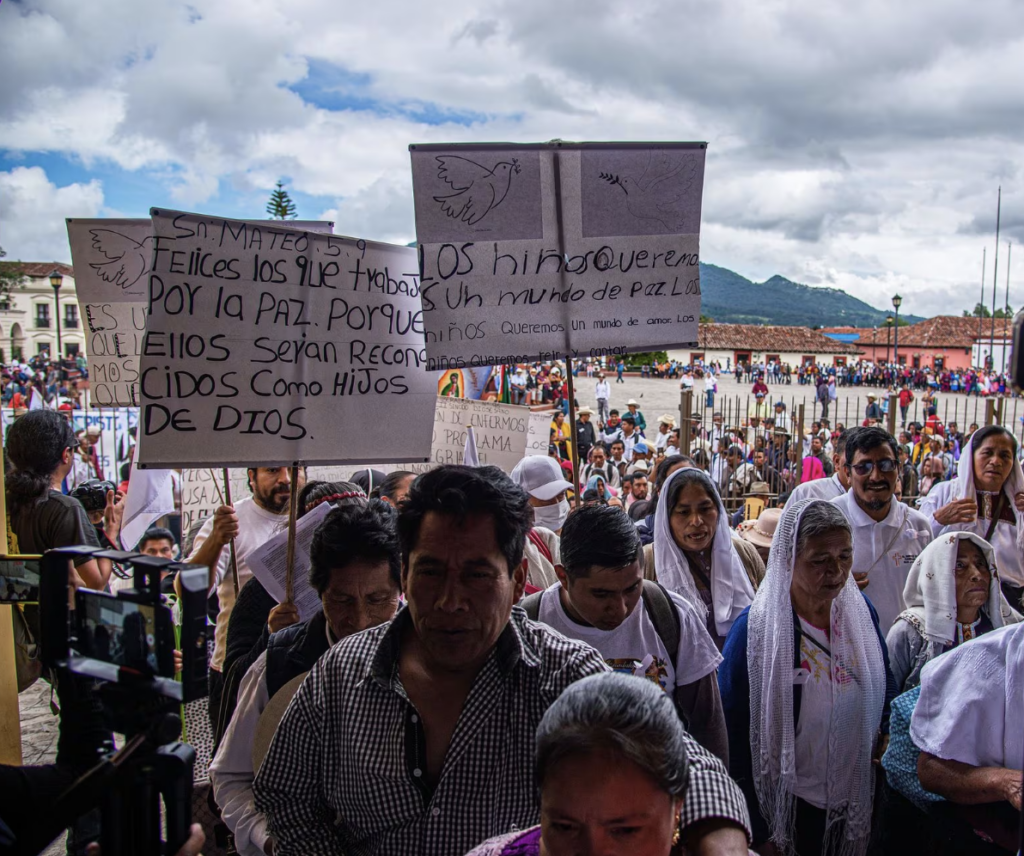
06/05/13 (written by tianacarriedo) – In light of President Enrique Peña Nieto’s desire to transform Mexico’s war on drugs and organized crime, U.S. lawmakers questioned the future of the U.S.-Mexico bilateral relationship during a House Committee on Foreign Affairs hearing held on May 23, 2013. The two-part series, with testimonies from a panel of three Mexico experts and officials from the U.S. Department of State and U.S. Agency for International Development, generated discussion about the viability of the Mérida Initiative, a $1.9 billion dollar security assistance package to Mexico, and the State Department’s readiness to respond to the Mexican government’s recentralization efforts.
Since taking office in December 2012, President Peña Nieto has made clear that his government would favor crime prevention and economic and social development programs as a means to reduce violence in Mexico. In theory, this strategy differs markedly from that of the previous president, Felipe Calderón, who waged an aggressive military-style war against Mexican drug trade organizations (DTOs). In addition to repositioning the country’s security priorities, Peña Nieto also recently moved to centralize bilateral security efforts so that one agency, the Interior Ministry (Secretaría de Gobernación, SEGOB), would be the main point of contact for all U.S. agencies involved in security cooperation efforts with Mexico.
The subcommittee hearing featured William R. Brownfield, Assistant Secretary at the Bureau for International Narcotics and Law Enforcement Affairs for the U.S. Department of State, who underscored the willingness of the United States to both shift the nature of its bilateral relationship and support through the Mérida Initiative and the Mexican government’s new security strategy:
“I have no problem with these signals. They are logical, they are coherent, [and] they are good ideas. There are a number of details yet to be defined, but what we have now is fully consistent with our strategic approach to the Mérida Initiative, where we support the four pillars, shift focus from equipment to training, and transition from federal to state and local institutions. As [President Obama] said in Mexico City two weeks ago, it is the people of Mexico who decide how we will cooperate in Mexico.”
As reported in the Washington Post, the centralization of the bilateral security relationship has been met with apprehension by some U.S. government officials who fear that hard-won personal relationships with Mexican army, navy, and federal police forces will deteriorate, as will intelligence sharing. Most analysts agree that these strong relationships engendered by the bilateral partnership have been a key success of the Mérida Initiative.
The first group of panelists at the Congressional Hearing also responded to questions about the need for Mérida funds—given U.S. budget constraints and the fact that Mexico is a middle-income country—and the readiness of the State Department to align its activities with the new organization of the bilateral relationship. All three panel members indicated that spending was on a downward slope in accordance with a shift from “high ticket items” to less expensive training and capacity building programs. Assistant Secretary Brownfield acknowledged that the State Department still does not have a strategy to implement such programs and projects with the Mexican Interior Ministry.
The Congressional hearing comes as Mexico remains bogged down in significant drug-related violence—an estimated 60,000 people have died and over 26,000 have gone missing from 2006 and 2012. Damning reports about incidents of state involvement in these deaths and disappearances are also mounting, with human rights organizations and families of missing persons accusing federal, state, and municipal forces of both complicity with DTOs and indifference in finding missing persons or solving drug-related deaths.
The first panel of the hearing featured William R. Brownfield and John D. Feeley from the U.S. Department of State and Elizabeth Hogan from the U.S. Agency for International Development. Clare R. Seelke from the Congressional Research Service, Steven Dudley from InSight Crime, and Francisco E. Gonzalez from Johns Hopkins University School of Advanced International Studies participated in the second panel.
Sources:
“EU, sin objeciones a la estrategia de seguridad de Peña.” Animal Político. May 13, 2013.
Miroff, Nick. “Restrictions on U.S. agents signal drug war shift.” Washington Post. May 14, 2013.




